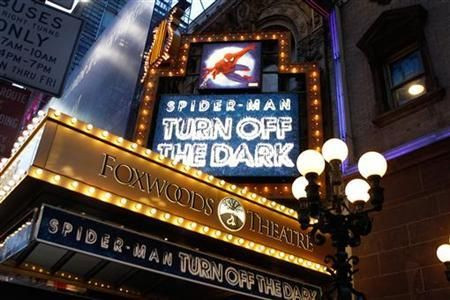Older Broadway Actors Booted From Equity-League Health Plan In Obamacare Fallout

They spent decades singing and dancing their hearts out for eight shows a week, but now the curtain is closing on their health care coverage. Hundreds of older stage actors are being kicked off the Actors’ Equity Association health insurance plan after the organization that manages the plan decided the actors were no longer cost-effective, according to people familiar with the situation.
Actors’ Equity Association is the largest union for stage actors, representing almost 50,000 actors and stage managers across the United States. The change, which takes effect at the end of this year, was made by the board of trustees for Equity-League Health Fund, the group that manages health plans for the union. It affects union members who pay their own premiums post-Cobra.
In a July 11 letter obtained by International Business Times, the Equity-League office said the decision was made due to “the enormous and rising costs” of the self-pay program and because of expanded availability of health insurance due to the Affordable Care Act, or Obamacare.
“I was flabbergasted,” said one actor, who worked for decades on Broadway and in regional theaters. “Most of us were in shock.”
Actors spoke with IBTimes on the condition of anonymity out of fear of being blacklisted by retaliatory theater producers. Many say they feel like they’re being cast aside by a union that had promised to look out for their interests.
“Of course, we’re not cost-effective,” said one actor. “We’re older people. You don’t just isolate a few people, the ones who are costing you the most money. That’s not what insurance is.”
Most of the actors being kicked off the plan have not worked under union contracts for some time, but they are still dues-paying Equity members. Many are over 50. They say they are actively pursuing stage work but are finding roles more difficult to come by as they get older.
Chris Brockmeyer, co-chair of the Equity-League Trust Fund, said the trustees did not make the decision lightly. He said the fund is facing negative cash flow and that trustees had been considering the change for years. They waited, he said, until alternatives were available through Obamacare.
“We didn’t want to simply leave these folks out in the cold,” he said. “With the availability of health care under the marketplaces, we made the decision that now was the time.”
Brockmeyer said Equity-League spends roughly $3 million a year for the 300 to 400 self-pay members who will be affected by the cuts. “It’s extraordinarily expensive,” he said. “What the Fund essentially has to pay for this group taken as a whole is about double what it is for the rest of the participants in the plan.”
Affected actors met with Equity-League officials last month and say they were told flat-out that their particular group is costing the too much money. Equity-League used to classify the group as “Vested Beyond Cobra,” but actors say the organization quietly dropped the word “vested,” which means “unconditionally guaranteed.”
“This was something that was promised to us,” one actor said.
According to the letter, the change affects actors in 15 states, including New York and California, where much of the entertainment sector is concentrated. Actors in New York say the Obamacare exchanges in that state offer them no comparable plan, and now they will have to find new doctors. Some say they have developed relationships with their health care professionals over many years, and one actor said he is being treated for a repetitive-stress injury that is a direct result of his stage work.
“They keep saying there’s a comparable Obamacare option, but there’s not,” one actor said. “I won’t be able to afford to go to [my doctor] anymore.”
Some performers say union stage work is becoming scarcer as as non-union touring shows proliferate. Equity recently launched a social media campaign aimed at Broadway shows that go on tour without union contracts.
A spokeswoman for Equity said the union doesn’t speak on behalf of Equity-League health funds or its participants. However, as some actors pointed out, the union took a different stance when drastic health care cuts were made in 2003 and Patrick Quinn -- then the union’s national president -- openly criticized the trustees who made the decision.
Actors say they just want the theater business to treat them with the same respect that they’ve treated it. “I devoted my life to this craft,” one actor said. “They’re saying, ‘You’ve been driving in a BMW. Now go get in this 1972 Ford and hope for the best.”
Actors Equity Healthcare Changes
Got a news tip? Email Christopher Zara here. Follow him on Twitter @christopherzara.
Correction: An earlier version of this article said the change affects union members who pay their own premiums through Cobra. It is post-Cobra participants who are affected.
© Copyright IBTimes 2024. All rights reserved.






















